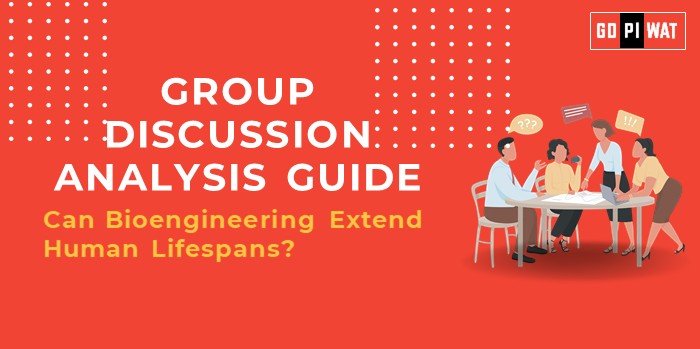GD Analysis Guide: Can Bioengineering Extend Human Lifespans?
🌐 Introduction
Bioengineering stands at the intersection of science and ethics, with the potential to transform human longevity. Advances in gene editing, regenerative medicine, and synthetic biology promise not only to treat but also to prevent age-related diseases, marking a pivotal moment in healthcare evolution.
📊 Quick Facts & Key Statistics
- 🌍 Global Life Expectancy: Increased to over 70 years in 2021 from less than 40 years in 1800, showcasing improved healthcare and living standards.
- 🧬 CRISPR Success: Over 200 experimental therapies have been conducted to treat genetic disorders, highlighting its clinical potential.
- 📈 Aging Market: Valued at USD 47 billion in 2023 and projected to reach USD 79.5 billion by 2024, driven by a focus on longevity.
- 🔄 Organ Transplant Gap: Over 104,000 individuals in the U.S. awaited transplants as of September 2024, emphasizing the urgency of bioengineered organs.
- 🧪 Cell Therapy Impact: The use of Yamanaka factors demonstrates promising anti-aging results but poses risks such as cancer development.
🤝 Stakeholders and Their Roles
- 🏛️ Governments: Establish ethical guidelines, fund research, and ensure public health policies accommodate bioengineering advances.
- 🏢 Private Sector: Innovate anti-aging products and technologies, leading R&D in regenerative medicine.
- 🩺 Healthcare Providers: Facilitate clinical trials and implement new treatments.
- 📜 Ethics Boards and Academics: Address ethical dilemmas and ensure equitable access to genetic editing and human enhancement technologies.
🏆 Achievements and Challenges
- Achievements:
- ✅ CRISPR Advancements: Real-world applications treating genetic conditions in over 200 individuals.
- 💡 Anti-Aging Innovations: Cellular rejuvenation techniques show promise in reversing aging markers.
- 🩻 Organ Replacement: Progress in synthetic organ development aims to reduce dependence on donors.
- Challenges:
- ⚖️ Ethical Concerns: Questions around the morality of extending human lifespans and potential misuse.
- 💸 Cost Barriers: High costs limit accessibility to advanced treatments.
- ⚠️ Health Risks: Technologies like cell therapy face challenges like unintended cancerous growths.
🌍 Global Comparisons
- 🇺🇸 United States: Dominates bioengineering innovations, with major CRISPR trials.
- 🇯🇵 Japan: Leads in regenerative medicine, supported by robust government policies.
- 🇨🇳 China: Develops large-scale research programs in organ regeneration, integrating AI for faster results.
🧠 Effective Discussion Approaches
- Opening Techniques:
- 📊 Statistical Lens: “With over 104,000 people waiting for organ transplants in the U.S., bioengineering offers a transformative solution.”
- ⚖️ Ethical Questioning: “Should humans actively intervene in natural aging processes?”
- ✅ Success Narrative: “CRISPR trials have already treated hundreds, proving the feasibility of genetic solutions.”
- Counter-Argument Handling:
- “While ethical concerns are valid, robust regulation can ensure equitable and responsible use of bioengineering.”
🔍 Strategic Analysis of Strengths & Weaknesses
- Strengths: Promises longer lifespans, reduced disease burden, and groundbreaking medical innovations.
- Weaknesses: High development costs, unequal access, and potential health risks.
- Opportunities: Expanding the anti-aging market, creating bioengineering startups, and fostering global collaborations.
- Threats: Public skepticism, legal challenges, and the possibility of misuse in unregulated environments.
📄 Structured Arguments for Discussion
- ✅ Supporting Stance: “Bioengineering advancements align with humanity’s natural drive for longevity and better health.”
- ❌ Opposing Stance: “Extending lifespans could strain global resources and deepen inequality.”
- ⚖️ Balanced Perspective: “Bioengineering has immense potential, but its implementation requires ethical oversight and equitable access.”
📚 Connecting with B-School Applications
- 💼 Real-World Applications: Opportunities in healthcare innovation management, ethical policy-making, and market analysis for longevity-focused industries.
- 📝 Sample Interview Questions:
- “How can bioengineering startups address affordability challenges?”
- “What role do ethical considerations play in regulating genetic editing technologies?”
- 💡 Insights for Students: Understanding market trends in the anti-aging sector and addressing ethical concerns can shape impactful leadership in biotechnology industries.


